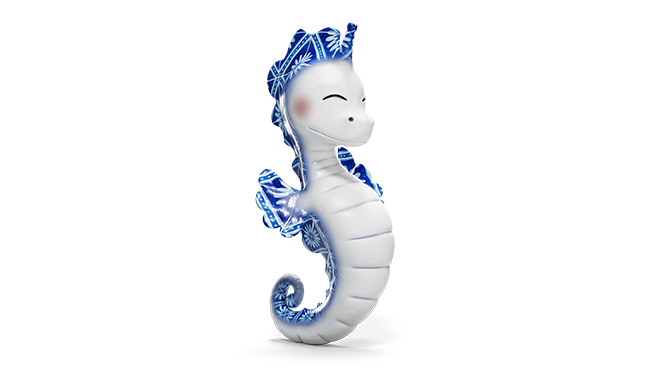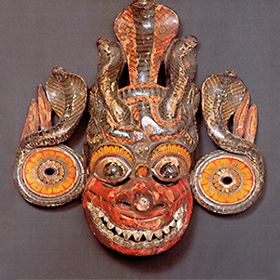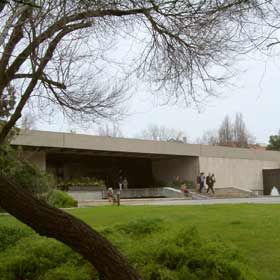Oceans of Dialogue
Oceans of Dialogue at Expo Osaka Kansai 2025
Portugal has plenty to offer at Expo Osaka Kansai 2025. This will be an opportunity to discover the country, strengthen cultural ties and celebrate the historic connection between Portugal and Japan. The Portuguese mascot UMI, a seahorse whose name means ‘sea’ in Japanese, will guide you on a journey where the seas connect the two countries.
Ocean: Blue Dialogue
The theme of the Portuguese pavilion at Expo Osaka is “Ocean: Blue Dialogue”, a tribute to the oceans that have connected Portugal and Japan for centuries, celebrating a history of exchange and cross-influences, from the arrival of Portuguese navigators in Japan, in the 16th century, to the present day.
Portugal: A destination for all the senses
In Portugal, heritage tells centuries of history through its cities and monuments, nature stretches from the mountains to the beaches bordering the Atlantic Ocean, and the gastronomy reflects both tradition and innovation, while the wines highlight the country's excellence. For all these reasons, it is a destination for well-being, where every experience becomes memorable.
Ikigai, which in Japan represents the reason for being and daily motivation, can be found in Portugal in the valorisation of heritage, sustainable development and the shaping of an innovative future. Likewise, curiosity - kokishin - is common to both Portugal and Japan. The spirit of discovery and exploration has shaped the history of both countries and continues to inspire new connections and learning. It is this connection to the ocean and the permanent quest for knowledge that are represented by the Portuguese mascot UMI.
UMI
A Japanese-inspired itinerary in Portugal
Take a Japanese-inspired tour of Portugal and visit the places where the legacy of both cultures remains present.
In Lisbon, the Orient Museum is a reference space for understanding the relationship between this Western country and the East. Discover the Namban screens, which are part of a set of art works that showcase the first contacts between the Portuguese and the Japanese, as well as other pieces that reflect the commercial and cultural exchange between the two nations.
In Belém, discover the Asia Pavilion, in the Tropical Botanical Garden, where you can find art pieces and decorative items from different Asian cultures, from Japan to China. It is a wonderful place for those who want to learn more about the Asian influence in Portugal. Every year, the Vasco da Gama Garden hosts the Japan Festival, an event that celebrates Japanese culture, with displays of martial arts, calligraphy, origami, musical performances, cosplay and Japanese cuisine.
A visit to the National Museum of Ancient Art is a must. The large collection of oriental art includes porcelain objects, paintings and pieces of furniture that bear witness to the exchange between Portugal and the East during the Age of Discoveries.
In Bairro Alto, stop by Casa Ásia, located in Largo Trindade Coelho, between the São Roque Church and Museum. This venue offers an immersive perspective on Asian culture in Portugal, and is fully adapted for visitors with visual and hearing impairments.
A must-see, the Calouste Gulbenkian Foundation holds an important collection of Japanese art, including Arita ceramics and paintings, which highlight the influence and sophistication of Japanese art.
Biombo Namban - Museu Nacional de Arte Antiga ©José Pessoa
In Alentejo, if you wish to explore the connection between southern Portugal and Japan, stop by Évora and the Ducal Palace of Vila Viçosa, two places visited by four Japanese people converted to Christianity by the Jesuits, in the 16th century. In the Évora Cathedral, be amazed by the grandeur of the Japanese pipe organ, a national heritage with centuries of history, and which was played by the first princes who came from Japan to Europe.
On a trip to the Portuguese archipelagos, consider a visit to the José do Canto Botanical Garden in Ponta Delgada, Azores, to admire the Japanese botanical species, such as the Japanese blueberry and the gingko biloba, which also reflect the botanical exchange between Eastern and Western cultures over the centuries. Meanwhile, in Madeira, at the Monte Palace Tropical Garden, in Funchal, you will find the panel “The Adventure of the Portuguese in Japan”, comprising 166 tiles that tell the story of this commercial exchange between the nations. Let yourself be surrounded by the exotic vegetation, the bamboo trees and the Buddhist stone statues.
Jardim Tropical Monte Palace ©Rumman Amin - Unsplash
If you want to experience even more of the Japanese spirit in Portugal, join in some of the most iconic annual events that celebrate the culture in style and attract fans of all ages. Though focused on comics, the Amadora BD stands out with the presence of manga and anime. On the other hand, Iberanime, which takes place in Matosinhos, is an event dedicated exclusively to Japanese culture, with cosplay competitions, workshops and themed areas on anime and Japanese traditions. At Comic Con Portugal, where pop culture is showcased and featured, you can enjoy anime and manga, among the many attractions.
As you can see, the history of the relationshipbetween Portugal and Japan is reflected in various cultural and natural settings. In Osaka, at the Portuguese Pavilion, you will also have a unique opportunity to explore and understand the connection between these two countries.








 Explore
Explore 
 Remember and Share
Remember and Share 


